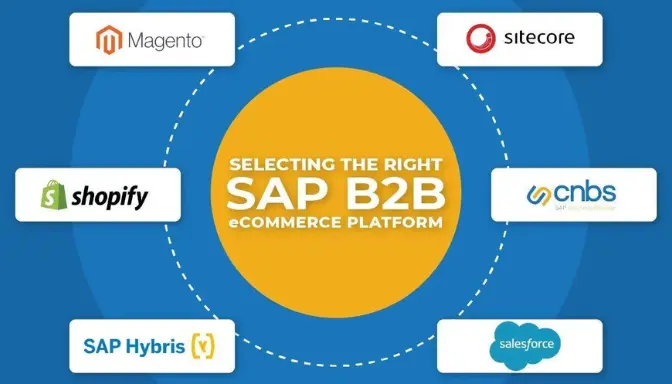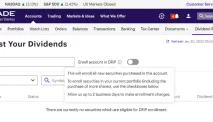Diksia.com - B2B ecommerce is the process of selling products or services online between two businesses. It is different from B2C ecommerce, where businesses sell directly to consumers. B2B ecommerce is a huge and growing market, with some estimates valuing it at over $12 trillion globally. B2B ecommerce can help businesses expand their customer reach, reduce their costs, improve their efficiency, and increase their revenue.
However, not all B2B ecommerce platforms are created equal. There are many factors to consider when choosing the best B2B ecommerce platform for your business, such as the features, benefits, and trends of B2B ecommerce. In this article, we will guide you through the process of choosing the best B2B ecommerce platform for your business, based on the following criteria:
- Features: What are the core features of B2B ecommerce platforms that you need to support your B2B sales processes and customer needs?
- Benefits: What are the main benefits of B2B ecommerce platforms that you can expect to gain from implementing B2B ecommerce for your business?
- Trends: What are the current and future trends of B2B ecommerce that you need to be aware of and adapt to in order to stay competitive and relevant in the B2B market?
Features of B2B Ecommerce Platforms
B2B ecommerce platforms are software solutions that enable businesses to create, manage, and optimize their online B2B sales channels. B2B ecommerce platforms should have features that address the unique challenges and opportunities of B2B sales, such as:
- Contract pricing and catalog: B2B ecommerce platforms should allow you to offer custom pricing and product catalogs to different customers, based on their contracts, agreements, or segments. This way, you can provide personalized and relevant offers to your B2B buyers, and increase your conversion rates and customer loyalty.
- Bulk ordering and quick reordering: B2B ecommerce platforms should enable your customers to place bulk orders and reorder frequently with ease and convenience. This way, you can simplify and speed up the ordering process, and reduce the friction and errors that may occur in manual or offline ordering methods.
- Restricted access control and portal customization: B2B ecommerce platforms should allow you to control who can access your B2B ecommerce site, and what they can see and do on it. This way, you can protect your sensitive information, and provide a tailored and secure experience to your B2B buyers. You should also be able to customize the look and feel of your B2B ecommerce site, to match your brand identity and preferences.
- Shared shopping carts and quote management: B2B ecommerce platforms should enable your customers to share their shopping carts with other users within their organization, and request or receive quotes from you online. This way, you can facilitate the collaboration and approval process that often involves multiple stakeholders in B2B purchasing decisions, and increase your chances of closing the deal.
- Digital payment options and product information management: B2B ecommerce platforms should offer a variety of digital payment options to your customers, such as credit cards, ACH, wire transfers, or net terms. This way, you can provide more flexibility and convenience to your B2B buyers, and improve your cash flow and payment security. B2B ecommerce platforms should also allow you to manage and update your product information easily and accurately, to ensure that your customers have access to the latest and most relevant product data.
These are some of the core features of B2B ecommerce platforms that you need to look for when choosing the best B2B ecommerce platform for your business.
However, depending on your specific business needs and goals, you may also need other features, such as:
- Marketing and analytics tools: B2B ecommerce platforms should provide you with tools to market your products or services online, and measure and optimize your B2B ecommerce performance. For example, you may need tools to create and manage landing pages, email campaigns, social media posts, or SEO strategies. You may also need tools to track and analyze your web traffic, conversions, sales, customer behavior, and feedback.
- Integration and scalability: B2B ecommerce platforms should integrate seamlessly with your existing business systems, such as your ERP, CRM, or inventory management system. This way, you can ensure that your data and processes are synchronized and consistent across your business operations. B2B ecommerce platforms should also be scalable and flexible, to support your business growth and changes over time.
- Customer service and support: B2B ecommerce platforms should provide you with customer service and support, to help you resolve any issues or challenges that you may encounter with your B2B ecommerce site. For example, you may need customer service and support to help you with technical issues, training, or updates.
Benefits of B2B Ecommerce Platforms
B2B ecommerce platforms can bring many benefits to your business, such as:
- Increased sales and revenue: B2B ecommerce platforms can help you increase your sales and revenue, by enabling you to reach new customers, markets, and segments, and by providing a more convenient and efficient way for your existing customers to buy from you. B2B ecommerce platforms can also help you increase your average order value, by offering upselling, cross-selling, or bundling opportunities, and by providing incentives or discounts for bulk or repeat purchases.
- Reduced costs and overhead: B2B ecommerce platforms can help you reduce your costs and overhead, by automating and streamlining your B2B sales processes, and by eliminating or reducing the need for intermediaries, such as sales reps, brokers, or agents. B2B ecommerce platforms can also help you reduce your inventory and logistics costs, by enabling you to manage your stock levels and deliveries more efficiently and accurately.
- Improved customer experience and loyalty: B2B ecommerce platforms can help you improve your customer experience and loyalty, by providing a more personalized, relevant, and convenient shopping experience to your B2B buyers, and by offering more value and benefits to them, such as faster delivery, better service, or loyalty programs. B2B ecommerce platforms can also help you improve your customer retention and satisfaction, by enabling you to communicate and interact with your customers more effectively, and by providing them with more feedback and support options.
Trends of B2B Ecommerce Platforms
B2B ecommerce is constantly evolving and changing, as new technologies, customer expectations, and market conditions emerge. Some of the current and future trends of B2B ecommerce that you need to be aware of and adapt to are:
- Mobile optimization: More and more B2B buyers are using their mobile devices to research and purchase products or services online. According to a Google study, 50% of B2B queries are made on smartphones, and this number is expected to grow to 70% by 2023. Therefore, it is essential that your B2B ecommerce site is optimized for mobile use, to provide a smooth and seamless experience to your mobile customers, and to avoid losing them to your competitors.
- Social commerce: Social media platforms are becoming more influential and popular in B2B ecommerce, as they provide a way for B2B buyers to discover, research, and engage with B2B sellers, and to purchase products or services directly from them. According to a Hootsuite study, 75% of B2B buyers use social media to support their purchase decisions. Therefore, it is important that you leverage social media platforms to market your products or services, and to integrate them with your B2B ecommerce site, to enable social commerce for your customers.
- Personalization: B2B buyers are increasingly demanding and expecting a more personalized and tailored shopping experience, similar to what they get in B2C ecommerce. According to a Salesforce study, 72% of B2B customers expect vendors to personalize engagements to their needs. Therefore, it is crucial that you use data and analytics to understand your customers’ preferences, behaviors, and needs, and to provide them with personalized offers, recommendations, and content, to increase their engagement and loyalty.
- Omnichannel sales: B2B buyers are using multiple channels and touchpoints to research and purchase products or services online, such as websites, marketplaces, social media, email, chat, or phone. According to a Forrester study, 74% of B2B buyers research at least half of their work purchases online. Therefore, it is vital that you provide an omnichannel sales strategy, to ensure that your customers have a consistent and seamless experience across all channels and touchpoints, and to increase your sales opportunities and conversions.
- Headless commerce: Headless commerce is a type of ecommerce architecture, where the front-end (the presentation layer) and the back-end (the business logic layer) of an ecommerce site are decoupled and separated. This allows for more flexibility and customization of the front-end, without affecting the back-end, and vice versa. Headless commerce is a trend that is gaining traction in B2B ecommerce, as it enables B2B sellers to provide a more dynamic and innovative customer experience, and to adapt to changing customer needs and market conditions faster and easier.
Conclusion
B2B ecommerce is a huge and growing opportunity for businesses, but it also requires a lot of planning and preparation. Choosing the best B2B ecommerce platform for your business is one of the most important decisions that you need to make the most out of your B2B ecommerce site. You need to consider the features, benefits, and trends of B2B ecommerce, and how they align with your business needs and goals. You also need to compare different B2B ecommerce platforms, and evaluate their pros and cons, before making a final decision.
Here are some tips to help you choose the best B2B ecommerce platform for your business:
- Define your B2B ecommerce objectives and requirements: Before you start looking for a B2B ecommerce platform, you need to have a clear idea of what you want to achieve and what you need from a B2B ecommerce platform. For example, you may want to increase your sales, reduce your costs, improve your customer experience, or expand your market. You also need to identify your B2B ecommerce requirements, such as the features, functions, integrations, and budget that you need from a B2B ecommerce platform.
- Research and compare different B2B ecommerce platforms: Once you have defined your B2B ecommerce objectives and requirements, you need to research and compare different B2B ecommerce platforms that meet your criteria. You can use online sources, such as reviews, ratings, testimonials, case studies, or demos, to learn more about the features, benefits, and drawbacks of different B2B ecommerce platforms. You can also ask for recommendations or referrals from other businesses that have used or are using B2B ecommerce platforms, and learn from their experiences and feedback.
- Test and evaluate different B2B ecommerce platforms: After you have narrowed down your options, you need to test and evaluate different B2B ecommerce platforms, to see how they work in practice, and how they fit your business needs and goals. You can request for free trials, demos, or consultations from the B2B ecommerce platform providers, and use them to test and evaluate the usability, performance, reliability, and security of different B2B ecommerce platforms. You can also use metrics, such as speed, uptime, conversion rate, customer satisfaction, or return on investment, to measure and compare the results and outcomes of different B2B ecommerce platforms.
- Choose the best B2B ecommerce platform for your business: Based on your testing and evaluation, you can choose the best B2B ecommerce platform for your business, that offers the best features, benefits, and value for your money. You can also negotiate the terms and conditions, such as the pricing, contract length, or support level, with the B2B ecommerce platform provider, to ensure that you get the best deal possible. You can also ask for references or testimonials from other customers, to verify the credibility and reputation of the B2B ecommerce platform provider.
Choosing the best B2B ecommerce platform for your business is not an easy task, but it is a worthwhile investment that can help you grow your business and gain a competitive edge in the B2B market. By following the steps and tips above, you can make an informed and confident decision, and choose the best B2B ecommerce platform for your business.






